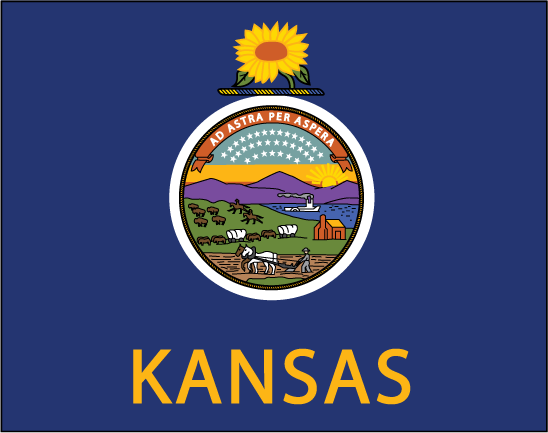The year 1889 was distinguished by the largest corn crop in Kansas history and by the first manufacture of beet sugar. To encourage the latter, a bounty was immediately offered by the State, and beet sugar making is now a staple industry in the southwestern counties. In the same year salt making was begun in the central part of the State, and oil and natural gas were added to the list of industries in 1892. Surplus fuel in the gas producing region brought other manufacturing, such as brick making, zinc smelting, glass, and cement. The value of livestock and farm products increased; in seven years, from 1887 to 1894, it aggregated more than $4,000,000,000, making possible the payment of public and private debts to the amount of $100,000,000. From the first experimental orchard planted at the Shawnee Mission (Johnson County) in 1837, patient care and selection had developed fruit raising throughout the eastern part of the State. In 1876 Kansas apples were awarded the gold medal at the exposition in Philadelphia, giving that product a prestige it still maintains.
The State's politics kept pace with its social and industrial development. In 1872 Kansas farmers organized a local grange of the Society of Patrons of Husbandry, which had been formed in Washington, D. C, in 1867, to improve farm life. In 1884 the Women's State Suffrage Association was formed; and three years later the movement secured the admittance of women to school, bond, and municipal elections. In the late 1880's a number of farm and labor parties became active. The Farmers' Alliance was most promising, and within two years it had become a power in the State. In 1890 at a State convention called by Benjamin H. Clover, a Cowley County farmer, it joined with the Grangers, Single Tax Club, Industrial Union, Knights of Labor, and others to form the People's or Populist Party. The party first concentrated its efforts to bring about the defeat of Senator John J. Ingalls and mustered enough votes in the State legislature of 1891 to elect William A. Peffer to the office Ingalls had held for 18 years. Populist orators, led by Mrs. Mary Elizabeth Lease, stumped the State, telling the farmers that the "money power" was conspiring to ruin them. Mrs. Lease is remembered for her advice to Kansas farmers "to raise less corn and more hell." By 1892 Populist strength was sufficient to elect the twelfth Governor, Lorenzo D. Lewelling.
The legislature assembled under Governor Lewelling echoed the turbulence of Territorial days. Both Republicans and Populists claimed the right to organize the house, each holding to its claim with a tenacity that required the presence of the State militia. Speakers from each party occupied the stand, wielding their gavels simultaneously. It is said that, for one night at least, they shared a common blanket back of the rostrum, since neither was willing to yield prerogative to the other. The difference was finally settled by an appeal to the State supreme court, which decided that the Republicans should occupy Representative Hall, the Populists agreeing to meet elsewhere.

